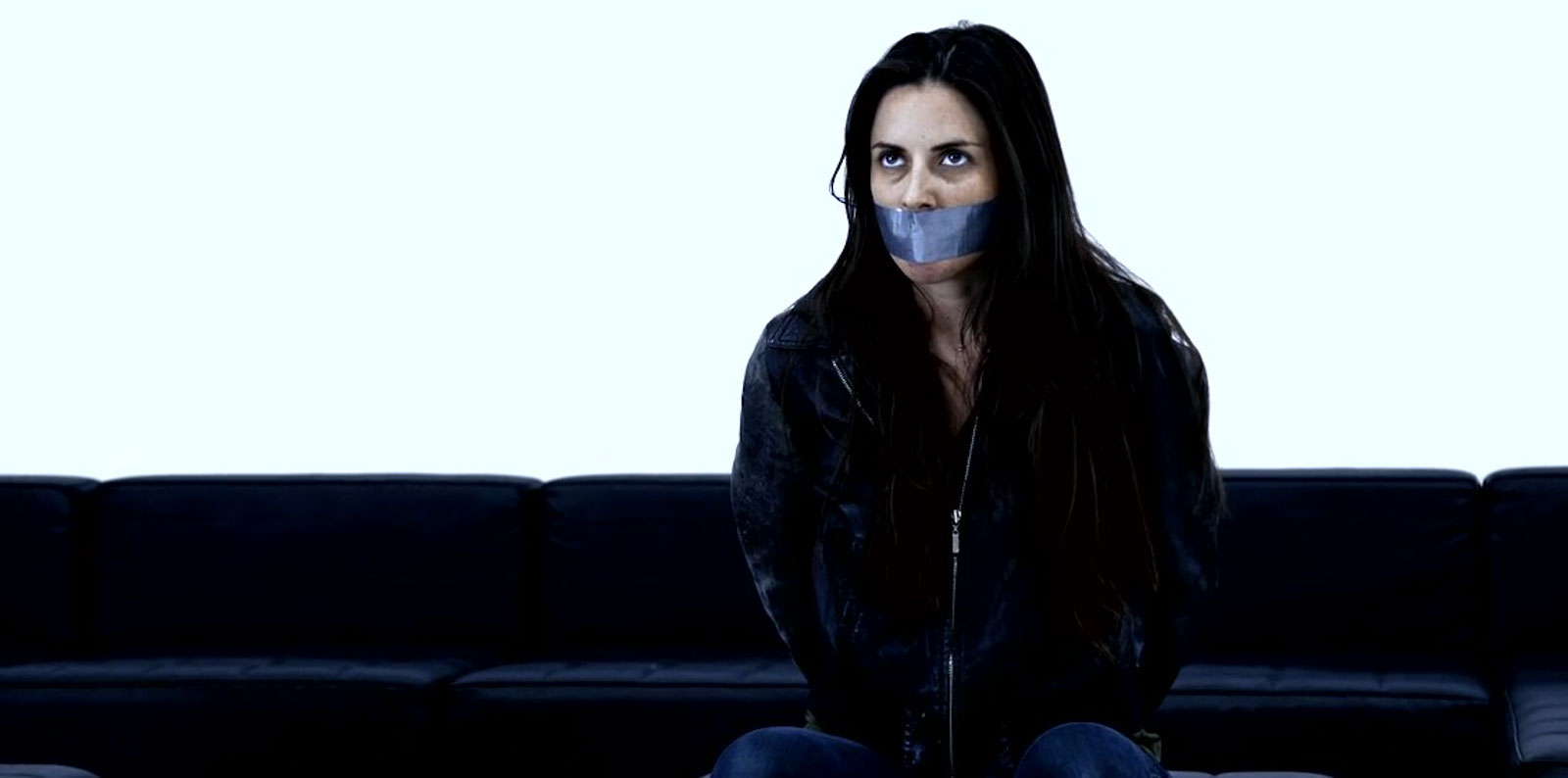
And does it take us to the dark side. This documentary, a 2008 Oscar (now winner – Ed.) nominee now in limited release, is one of the most disturbing films to appear in some time, the Coen brothers’ “No Country for Old Men” and Sidney Lumet’s “Before the Devil Knows You’re Dead” notwithstanding. Far from a meditation on underworld nihilism, “Taxi” captures the evil that many men do under the guise of American justice. Just as Bardem’s menacing Chigurh approaches his targets in “No Country,” American military administrators approached Afghan detainees with shackles and convoluted policy in their pockets.
“Taxi” launches into its investigation through the story of Dilawar, an Afghan taxi driver who was detained by American troops. As his cab passengers were suspected terrorists, so too was Dilawar, who was then taken to Bagram, an interrogation facility created after the American invasion of Afghanistan. A man from a farming village – though from a different culture, the Moroccan family in “Babel” is not far off – Dilawar, obviously innocent, entered a surreal confinement that cannot be described as a prison. In a cell, the door locks you in – in Bagram, PUCs (“persons under US custody”) were detained with handcuffs fixed to a mesh ceiling.
This detainment made for a “permissible” form of torture, wherein tired prisoners would drift off and thus inflict pain on their clasped wrists. In this way sleep is deprived, and the truth will allegedly surface from these anti-American terrorists. Though barbaric, the interrogation procedure is calculated down to a system: near the entrance would hang a chart that listed numbers next to arrows, pointing either up or down. 5 up instructed that a prisoner was to be chained for five hours; 2 down indicated a brief rest.
The premise of “Taxi” is familiar territory, since the Abu Ghraib pictures remain in the memory of any American who has even glimpsed at them. The film details the development of American interrogation facilities that begins with Bagram, then moves to Abu Ghraib, and then to Guantanamo Bay, where barbarism is replaced by outright absurdity. (Here Afghan prisoners are offered basketball courts and board games, regardless if the items are culturally meaningless to them.) If the Abu Ghraib photos made us cringe with shame, “Taxi” devastates once it reveals the depths of the ordeal.
Once the media learned of Dilawar’s death, and that the military officially reported it as a homicide, his story gained media attention. An autopsy revealed that his legs suffered major tissue damage – left “pulpified,” according to one account – from a procedure approved by the military. If hanging a prisoner by handcuffs wasn’t enough to yield information, then soldiers would knee his thighs to induce “distress.” In talking head interviews, former Bagram interrogators unguardedly describe their duties. One, a bruiser type named Damien Corsetti, kicked prisoners on order so frequently that he claims he had to switch his kicking leg. He relates his story as if he’s looking to his own past with disbelief, like a derelict teen who has mended his ways.
But the abuse didn’t end with violence: psychological torture came in the form of barking dogs and systematic yelling. Corsetti notes that the screaming sessions were so lengthy and mind-numbing to administer that some days he’d yell out the ingredients on his cereal box. Viewers are left to imagine the effects.
Though “Taxi” doesn’t let the guilty subjects off easy – we learn that one Army grunt repeatedly kicked a prisoner just to hear him scream out “Allah” – director Alex Gibney (“Enron: the Smartest Guys in the Room”) does not exploit his interviewees, who detail their crimes and arrests after the news broke. All this testimony reveals Army personnel that took heat for the higher ups who ordered the mistreatment. In fact, as disturbing as the descriptions of the abuse are, the most disquieting moments in this nonfiction narrative come when media clips depict Dubya, Cheney, Rumsfeld, and their Bushist cronies attempting to talk their way out of culpability. When hearing the reactions from the inept Former Attorney General Alberto Gonzales and Dubya himself, viewers will recall Condi’s convoluted rationalization about the war in Iraq as “strategically sound but operationally flawed.” Thus too was the buck passed for Bagram and Abu Ghraib.
Kudos go to Gibney for capturing all this with technical prowess, the kind that many a documentarian dreams to achieve. The effect was so strong that viewers at the Philadelphia screening I attended seemed beaten down when leaving. In the dead-silent theater, as the credits rolled, two women shouted out, “Call your congressman so we can impeach these motherfuckers.” Another young viewer said she couldn’t stop chomping her popcorn during the film, it upset her so much. At that moment, I couldn’t articulate my devastation. This film remains with you like a wound bleeding truth.
